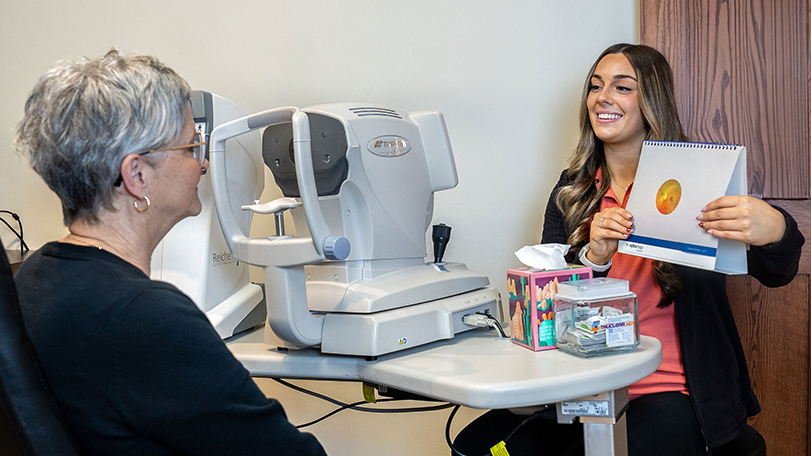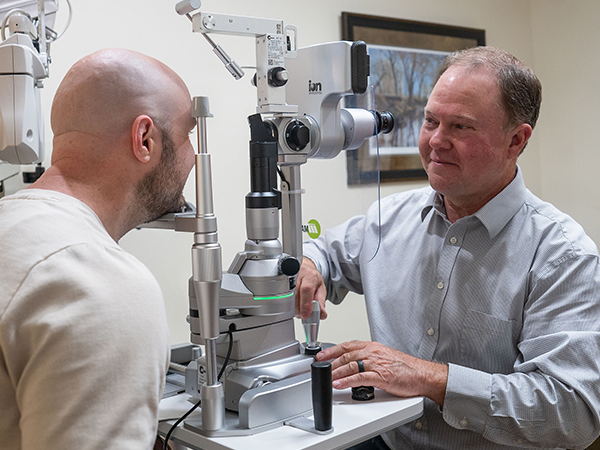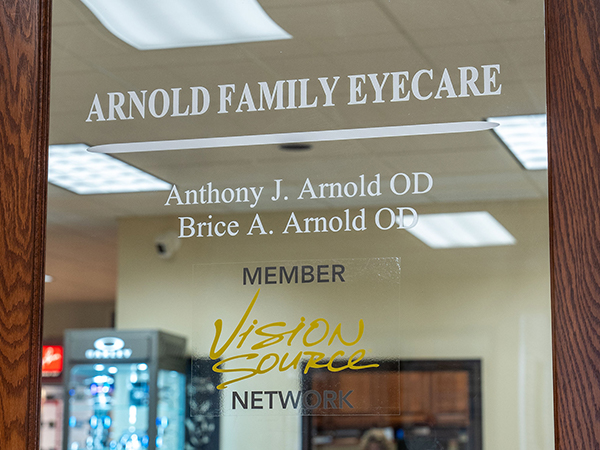Diabetic Related Eye Exams

Diabetes and Your Eyes: Understanding Diabetic Retinopathy
You’ve likely heard of diabetes—one of the most widespread chronic health conditions in the United States. In fact, over 100 million adults are currently living with diabetes or prediabetes. This metabolic disorder affects the body’s ability to regulate blood sugar levels, often requiring long-term management to keep them within a healthy range.
Most people are aware that diabetes can lead to serious health complications, but many don’t realize that it can also affect your vision. One of the most common eye-related complications is a condition called diabetic retinopathy. If left untreated, diabetic retinopathy can lead to permanent vision loss, which is why regular diabetic eye exams are essential for anyone living with the condition.
What Is Diabetic Retinopathy?
To see clearly, the structures within your eyes—especially the retina—need to function properly. The retina is a thin layer of light-sensitive cells located at the back of your eye. It captures light and sends visual signals through the optic nerve to the brain, where they’re processed into the images you see.
The retina depends on a constant supply of oxygen and nutrients, which it receives from a network of tiny blood vessels. Over time, high blood sugar levels can damage these delicate vessels, causing them to leak blood and fluid into the retina. This can result in swelling, scarring, and ultimately, distorted or blurred vision.
Who’s at Risk for Diabetic Retinopathy?
Anyone with diabetes—whether Type 1 or Type 2—can develop diabetic retinopathy. However, some factors can increase your risk, including:
Poorly controlled blood sugar levels
Having diabetes for many years
High blood pressure (hypertension)
High cholesterol

Why Regular Eye Exams Matter
Diabetic retinopathy often develops without noticeable symptoms in its early stages, making routine eye exams a critical part of diabetes management. These specialized exams allow Dr. Tony or Dr. Brice to monitor for early signs of retinal damage and take action before vision loss occurs.
If you have diabetes, staying on top of your eye health is just as important as managing your blood sugar. Schedule regular diabetic eye exams to protect your vision and catch any changes early.
What to Expect During a Diabetic Eye Exam
During the exam, you’ll receive eye drops that dilate your pupils, allowing your eye care provider to get a clear view of the back of your eyes. These drops may cause mild stinging for a few seconds and will temporarily blur your vision. The dilation helps Dr. Tony or Dr. Brice detect any early signs of diabetic retinopathy or other diabetes-related eye changes. If any issues are found, your doctor will discuss the next steps, which may include improved blood sugar control, medication, or treatment options to help protect your vision. Recommendations will be tailored to your specific needs and the severity of any findings. After your diabetic eye exam, a detailed report of the findings is typically sent to your primary care physician (PCP) or endocrinologist. This helps your healthcare team stay informed and coordinate your overall diabetes management to protect your vision and health.
If you have any questions about diabetic eye exams or would like to schedule an appointment, our friendly and knowledgeable eye care team is here to help.



